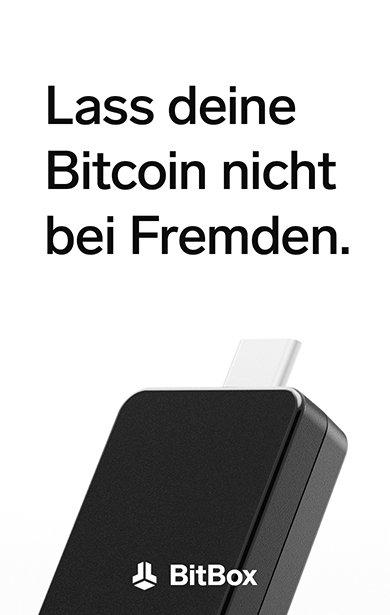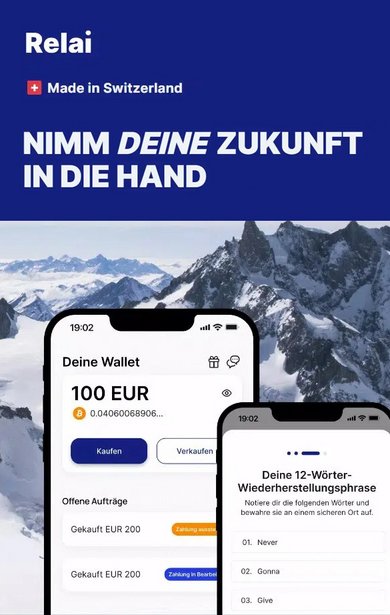US inflation data boost Bitcoin price
The US inflation rate for April reported today at 14:30 German time was exactly as expected at 3.4%. However, at 0.3%, the rate of change compared to the previous month was slightly below the expected 0.4%.
Following the reported figures, the probability of the current baseline assumption that the US Federal Reserve will cut interest rates twice more this year has risen slightly. The capital markets responded positively to the news and the Bitcoin price rose significantly from USD 62,500 to over USD 64,500 in reaction.
Inflation no longer a threat?
Although the annual inflation rate of 3.4% is below the previous month's figure of 3.5%, this does not mean that consumer goods in the USA are becoming cheaper again. This is because prices have continued to rise compared to the previous month, albeit at a slightly lower rate than expected.
Inflation in the USA is still well above the 2% target, but this has hardly caused the markets any concern in recent weeks and months. When hotter than expected producer prices were reported yesterday, the capital markets were also largely unimpressed. The prices that manufacturers are charging for their products have risen by 0.5 percent compared to the previous month - only 0.2 percent had been expected.
Despite the surprisingly stubborn inflation for the US Federal Reserve and the resulting postponement of interest rate cuts since the beginning of the year, the stock markets are trading at all-time highs. A few days ago, the weak US labor market data for April made the markets more confident that the Federal Reserve (Fed) will soon cut interest rates despite inflation remaining well above the 2% target.
In this respect, the market's expectations contradict what the Fed is currently communicating. Yesterday, Fed Chairman Jerome Powell signaled at a Foreign Bankers' Association event in Amsterdam that monetary policy will probably remain restrictive for longer. However, Powell also repeated the statement from the central bank meeting in April that an increase in the key interest rate was unlikely. However, the Fed Chairman held out the prospect that interest rates could remain at the current level of 5.25 to 5.50 percent for longer.
However, the markets may also realize that the Fed is unlikely to put pressure on the financial markets in view of the upcoming US presidential elections. Presidential candidate Trump has already announced that, as president, he will fire Jerome Powell as Fed Chairman and turn the central bank upside down. During his time in office, Trump frequently criticized the Fed Chairman he appointed, partly because, according to him, he did not set interest rates low enough in 2018. It is therefore conceivable that the US Federal Reserve will do everything in its power this year to back President Biden - if only out of self-interest.
However, as high inflation is also not in the interests of US citizens or the Biden administration, it will be interesting to see whether the Federal Reserve succeeds in reducing the inflation rate further without choking off the economy and the capital markets. It remains to be seen whether this so-called "soft landing" will succeed and what steps the Fed will take if inflation does pick up further momentum. However, the fact that inflation is now slightly lower than expected gives us more hope for this "Goldilocks scenario".
Is Bitcoin a hedge against inflation?
The price of Bitcoin collapsed when inflation rates in the US went through the roof in 2022 and the US Federal Reserve subsequently adopted a tighter monetary policy stance. The fact that Bitcoin fell in price when inflation was high led some market observers to deny that the asset was an inflation hedge.
The positive price reaction in the context of the slightly better than expected inflation figures for April shows that Bitcoin is still very sensitive to inflation data - but contrary to what one would actually expect from an inflation hedge. The reason for this is that Bitcoin is probably the asset with the strongest correlation to global liquidity and if a looser monetary policy by the world's most relevant central bank becomes more likely, the Bitcoin price will rise in anticipation.
Although the Bitcoin price has had a hard time in the face of high inflation figures in recent years, anyone who bought Bitcoin in 2020 in anticipation of the inflation wave has more than compensated for the loss of purchasing power of money with their Bitcoin investment. From this perspective, Bitcoin does provide protection against the loss of purchasing power of national currencies. Because even with an inflation rate of 3.4%, the value of the currency halves in just 21 years.







